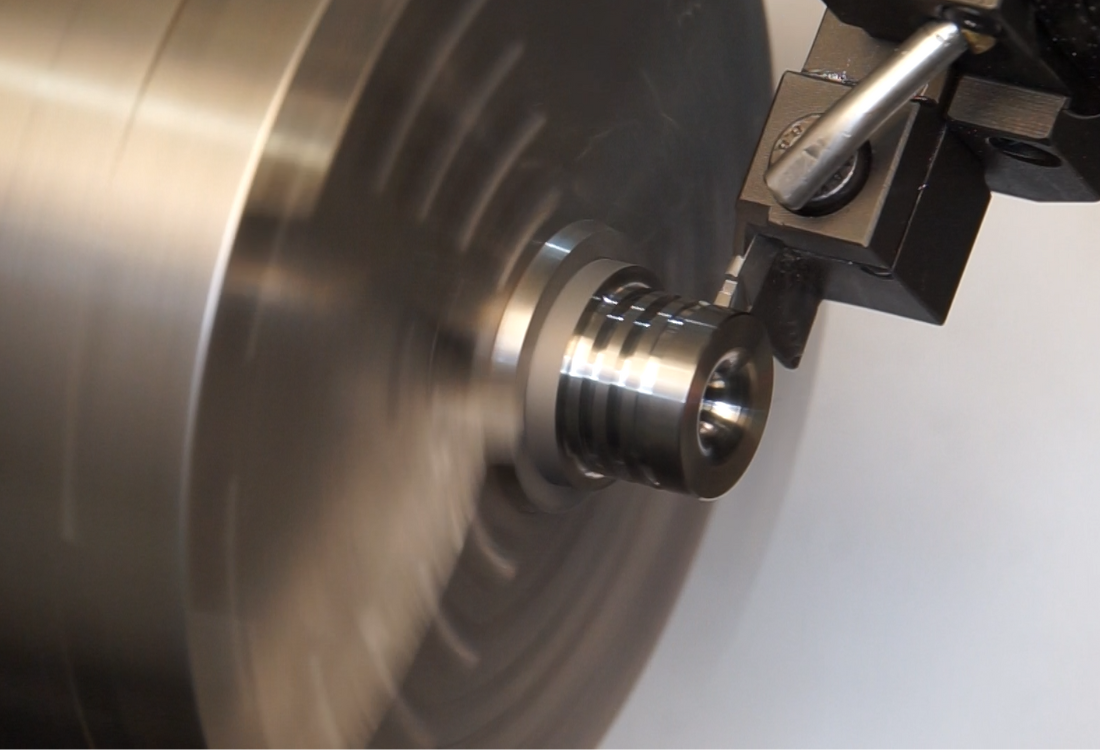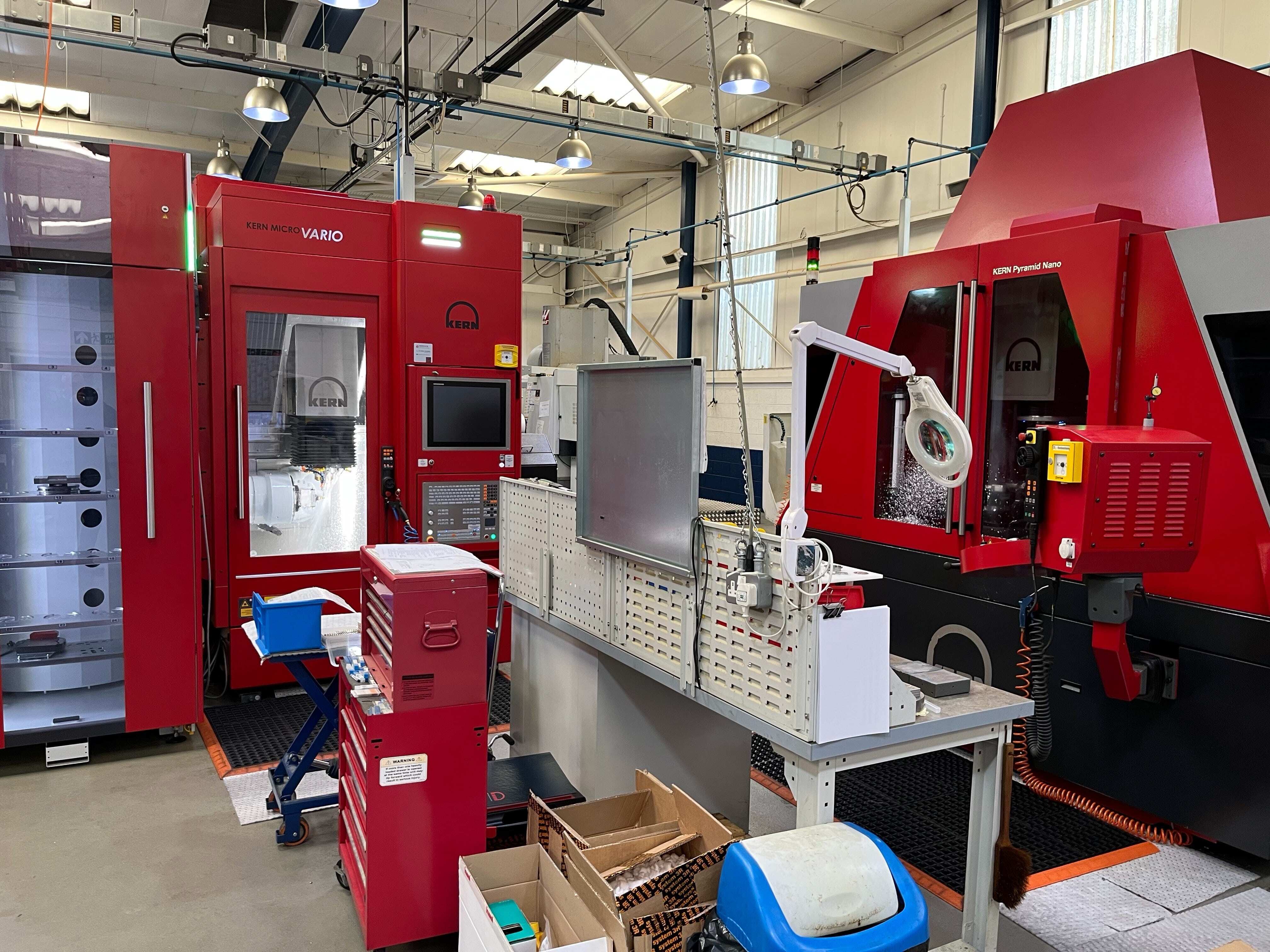The Impact Of Kern Automated Production At WLR Precision Engineering Limited
A desire to automate the manufacture of high precision components, whilst getting the best utilisation out of their skilled engineers, was the key...
2 min read
 Miles
:
Apr 11, 2025 9:00:00 AM
Miles
:
Apr 11, 2025 9:00:00 AM

Precision engineering has fundamentally redefined modern manufacturing by enabling unprecedented levels of accuracy, efficiency, and scalability. Industries such as aerospace, biomedical technology, and advanced electronics rely extensively on these innovations to meet stringent regulatory and operational standards. Beyond their unparalleled technical performance, precision engineering and CNC (Computer Numerical Control) machining also serve as pivotal drivers of cost efficiency.
This article examines how precision engineering and CNC machining effectively reduce production costs while maintaining exceptional output quality.
Mistakes are an inevitable part of manual processes, and in manufacturing, even small errors can lead to defective products, rework, or wasted materials. Precision engineering mitigates this by utilising advanced CNC machines to automate critical stages of production.
These systems minimise human dependency by automating intricate production stages, thereby achieving higher levels of uniformity and precision. Consequently, manufacturers benefit from reduced defect rates, diminished downtime, and optimised workflows. This rigorous automation framework ensures consistent adherence to design specifications, even in highly complex or high-volume production scenarios.
The capabilities of CNC machining significantly enhance production speeds, particularly when compared to traditional manual methods. CNC machines perform complex tasks with efficiency, often consolidating multiple operations into a single setup. This not only expedites cycle times but also minimises interruptions in production flow.
Continuous operation (including overnight and unattended machining) further enhances productivity. By automating critical processes such as tool changes, material positioning, and quality checks, CNC systems enable manufacturers to fulfil demanding production schedules without compromising on precision.
Material waste represents a significant cost centre in manufacturing, particularly when working with high-value materials such as aerospace-grade titanium or advanced composites. CNC machining addresses this challenge by integrating sophisticated computational tools like CAD and CAM. These technologies optimise material usage by precisely mapping toolpaths and eliminating inefficiencies inherent to manual fabrication methods.
By minimising offcuts and reducing scrap, CNC machining not only conserves raw materials but also lowers disposal costs and environmental impact. This capability is particularly critical in sectors where material efficiency directly influences financial and operational viability.
One of the key benefits of precision machining is its ability to support iterative design improvements. Engineers can refine component designs to rapidly and with exceptional fidelity. Such flexibility supports the optimisation of geometries, tolerances, and material properties to enhance manufacturability and reduce operational costs.
For instance, increasing the radius of internal corners can decrease tool wear and machining time, while reinforcing thin sections enhances structural integrity and reduces breakage risk. Over successive production runs, these iterative improvements compound to yield substantial cost savings and performance gains, aligning production capabilities with evolving design requirements.
The integration of CNC machining into manufacturing workflows substantially reduces labour dependency by automating repetitive and labour-intensive tasks. These systems are engineered for prolonged, unattended operation, enabling manufacturers to maintain high productivity levels with a lean workforce.
While skilled personnel remain essential for programming, oversight, and maintenance, the redistribution of labour toward high-value tasks enhances operational efficiency. This reduction in manual intervention not only lowers direct labour costs but also minimises the risks associated with human error and fatigue.
Precision engineering and CNC machining have become indispensable tools for modern manufacturing. By reducing errors, minimising waste, and enhancing production efficiency, these technologies enable businesses to achieve significant cost savings while maintaining exceptional product quality.
For more insights into how Rainford Precision’s cutting-edge tools can enhance your manufacturing processes, visit our website and book a consultation today!

A desire to automate the manufacture of high precision components, whilst getting the best utilisation out of their skilled engineers, was the key...

Watchmaking is renowned for its craftsmanship and incredible attention to detail. But with many intricate components, from gears and springs to...

In modern precision engineering, the quality of cutting tools can directly influence the overall success of the manufacturing process. Milling...